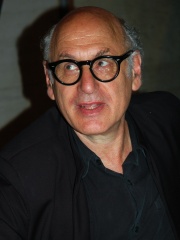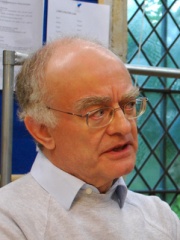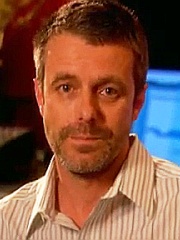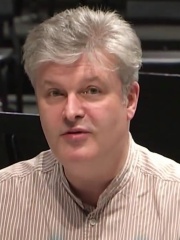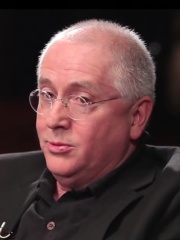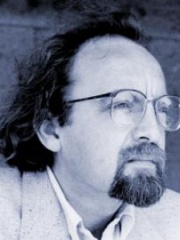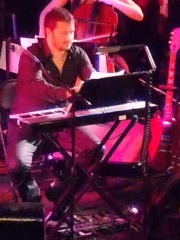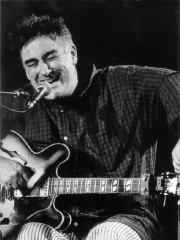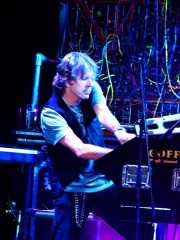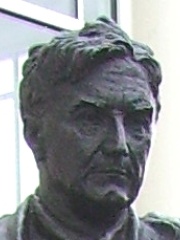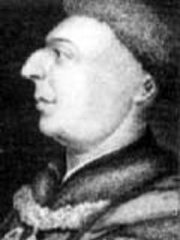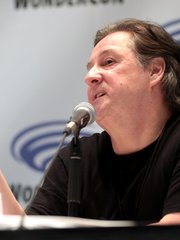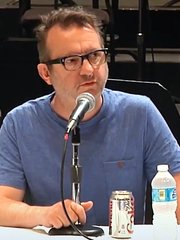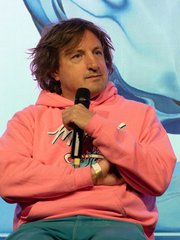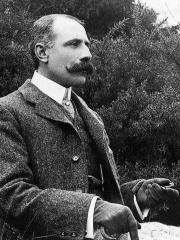
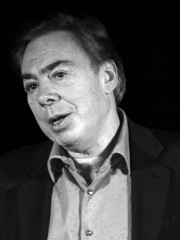

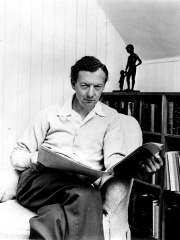
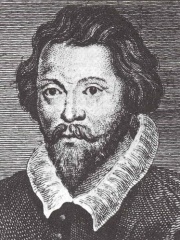
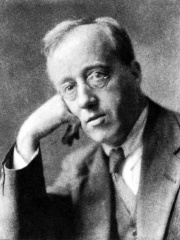
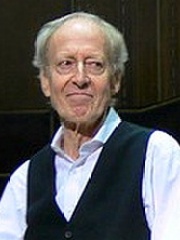
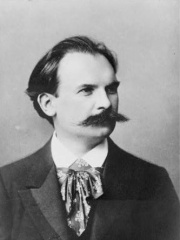
The Most Famous
COMPOSERS from United Kingdom
This page contains a list of the greatest British Composers. The pantheon dataset contains 1,451 Composers, 112 of which were born in United Kingdom. This makes United Kingdom the birth place of the 5th most number of Composers behind France, and United States.
Top 10
The following people are considered by Pantheon to be the top 10 most legendary British Composers of all time. This list of famous British Composers is sorted by HPI (Historical Popularity Index), a metric that aggregates information on a biography's online popularity. Visit the rankings page to view the entire list of British Composers.

1. Edward Elgar (1857 - 1934)
With an HPI of 79.61, Edward Elgar is the most famous British Composer. His biography has been translated into 64 different languages on wikipedia.
Sir Edward William Elgar, 1st Baronet, ( ; 2 June 1857 – 23 February 1934) was an English composer, many of whose works have entered the British and international classical concert repertoire. Among his best-known compositions are orchestral works including the Enigma Variations, the Pomp and Circumstance Marches, concertos for violin and cello, and two symphonies. He also composed choral works, including The Dream of Gerontius, chamber music and songs. He was appointed Master of the King's Musick in 1924. Although Elgar is often regarded as a typically English composer, most of his musical influences were not from England but from continental Europe. He felt himself to be an outsider, not only musically, but socially. In musical circles dominated by academics, he was a self-taught composer; in Protestant Britain, his Roman Catholicism was regarded with suspicion in some quarters; and in the class-conscious society of Victorian and Edwardian Britain, he was acutely sensitive about his humble origins even after he achieved recognition. He nevertheless married the daughter of a senior British Army officer. She inspired him both musically and socially, but he struggled to achieve success until his forties, when after a series of moderately successful works his Enigma Variations (1899) became immediately popular in Britain and overseas. He followed the Variations with a choral work, The Dream of Gerontius (1900), based on a Roman Catholic text that caused some disquiet in the Anglican establishment in Britain, but it became, and has remained, a core repertory work in Britain and elsewhere. His later full-length religious choral works were well received but have not entered the regular repertory. In his fifties, Elgar composed a symphony and a violin concerto that were immensely successful. His second symphony and his cello concerto did not gain immediate public popularity and took many years to achieve a regular place in the concert repertory of British orchestras. Elgar's music came, in his later years, to be seen as appealing chiefly to British audiences. His stock remained low for a generation after his death. It began to revive significantly in the 1960s, helped by new recordings of his works. Some of his works have, in recent years, been taken up again internationally, but the music continues to be played more in Britain than elsewhere. Elgar has been described as the first composer to take the gramophone seriously. Between 1914 and 1925, he conducted a series of acoustic recordings of his works. The introduction of the moving-coil microphone in 1923 made far more accurate sound reproduction possible, and Elgar made new recordings of most of his major orchestral works and excerpts from The Dream of Gerontius.

2. Andrew Lloyd Webber (b. 1948)
With an HPI of 78.83, Andrew Lloyd Webber is the 2nd most famous British Composer. His biography has been translated into 64 different languages.
Andrew Lloyd Webber, Baron Lloyd-Webber (born 22 March 1948), commonly referred to as "Lloyd Webber", is an English composer and impresario of musical theatre. Several of his musicals have run for more than a decade both in the West End and on Broadway. He has composed 21 musicals, a song cycle, a set of variations, two film scores, and a Latin Requiem Mass. Several of Lloyd Webber's songs have been widely recorded and widely successful outside their parent musicals, such as "Memory" from Cats, "The Music of the Night" and "All I Ask of You" from The Phantom of the Opera, "I Don't Know How to Love Him" from Jesus Christ Superstar, "Don't Cry for Me Argentina" from Evita, and "Any Dream Will Do" from Joseph and the Amazing Technicolor Dreamcoat. In 2001, The New York Times referred to him as "the most commercially successful composer in history". The Daily Telegraph named him in 2008 the fifth-most powerful person in British culture, on which occasion lyricist Don Black said that "Andrew more or less single-handedly reinvented the musical." Lloyd Webber has received numerous awards, including a knighthood in 1992, followed by a peerage for services to the arts, seven Tony Awards, seven Laurence Olivier Awards, three Grammy Awards (as well as the Grammy Legend Award), an Academy Award, 14 Ivor Novello Awards, a Golden Globe Award, a Brit Award, the 2006 Kennedy Center Honors, and two Classic Brit Awards (for Outstanding Contribution to Music in 2008, and for Musical Theatre and Education in 2018). In 2018, after Jesus Christ Superstar Live in Concert won the Primetime Emmy Award for Outstanding Variety Special (Live), he became the thirteenth person to win an Oscar, an Emmy, a Grammy, and a Tony. He has a star on the Hollywood Walk of Fame, is an inductee into the Songwriters Hall of Fame, and is a fellow of the British Academy of Songwriters, Composers, and Authors. LW Entertainment (formerly The Really Useful Group), Lloyd Webber's company, is one of the largest theatre operators in London. Producers in several parts of the UK have staged productions, including national tours, of Lloyd Webber musicals under licence from LW Entertainment. He is also the president of the Arts Educational Schools, London, a performing arts school located in Chiswick, west London. Lloyd Webber is involved in a number of charitable activities, including the Elton John AIDS Foundation, Nordoff Robbins, Prostate Cancer UK and War Child. In 1992, he started the Andrew Lloyd Webber Foundation which supports the arts, culture, and heritage of the UK.

3. Henry Purcell (1659 - 1695)
With an HPI of 78.16, Henry Purcell is the 3rd most famous British Composer. His biography has been translated into 61 different languages.
Henry Purcell (, rare: ; c. 10 September 1659 – 21 November 1695) was an English composer and organist of the middle Baroque era. He composed more than 100 songs, a tragic opera Dido and Aeneas, and wrote incidental music to a version of Shakespeare's A Midsummer Night's Dream called The Fairy Queen. Purcell's musical style was uniquely English, although it incorporated Italian and French elements. Purcell is generally considered to be one of the greatest English composers.

4. Benjamin Britten (1913 - 1976)
With an HPI of 73.16, Benjamin Britten is the 4th most famous British Composer. His biography has been translated into 62 different languages.
Edward Benjamin Britten, Baron Britten (22 November 1913 – 4 December 1976) was an English composer, conductor, and pianist. He was a central figure of 20th-century British music, with a range of works including opera, other vocal music, orchestral and chamber pieces. His best-known works include the opera Peter Grimes (1945), the War Requiem (1962) and the orchestral showpiece The Young Person's Guide to the Orchestra (1945). Britten was born in Lowestoft, Suffolk, the son of a dentist. He showed talent from an early age. He studied at the Royal College of Music in London and privately with the composer Frank Bridge. Britten first came to public attention with the a cappella choral work A Boy Was Born in 1934. With the premiere of Peter Grimes in 1945, he leapt to international fame. Over the next 28 years, he wrote 14 more operas, establishing himself as one of the leading 20th-century composers in the genre. In addition to large-scale operas for Sadler's Wells and Covent Garden, he wrote chamber operas for small forces, suitable for performance in venues of modest size. Among the best known of these is The Turn of the Screw (1954). Recurring themes in his operas include the struggle of an outsider against a hostile society and the corruption of innocence. Britten's other works range from orchestral to choral, solo vocal, chamber and instrumental as well as film music. He took a great interest in writing music for children and amateur performers, including the opera Noye's Fludde, a Missa Brevis, and the song collection Friday Afternoons. He often composed with particular performers in mind. His most frequent and important muse was his personal and professional partner, the tenor Peter Pears; others included Kathleen Ferrier, Jennifer Vyvyan, Janet Baker, Dennis Brain, Julian Bream, Dietrich Fischer-Dieskau, Osian Ellis and Mstislav Rostropovich. Britten was a celebrated pianist and conductor, performing many of his own works in concert and on record. He also performed and recorded works by others, such as Bach's Brandenburg Concertos, Mozart symphonies, and song cycles by Schubert and Schumann. Together with Pears and the librettist and producer Eric Crozier, Britten founded the annual Aldeburgh Festival in 1948, and he was responsible for the creation of Snape Maltings concert hall in 1967. In 1976, he was the first composer to be given a life peerage. He died shortly afterwards, aged 63.
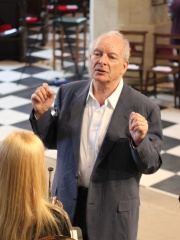
5. Christopher Hogwood (1941 - 2014)
With an HPI of 71.94, Christopher Hogwood is the 5th most famous British Composer. His biography has been translated into 24 different languages.
Christopher Jarvis Haley Hogwood (10 September 1941 – 24 September 2014) was an English conductor, harpsichordist, and musicologist. Founder of the early music ensemble the Academy of Ancient Music, he was an authority on historically informed performance and a leading figure in the early music revival of the late 20th century.

6. William Byrd (1543 - 1623)
With an HPI of 71.09, William Byrd is the 6th most famous British Composer. His biography has been translated into 45 different languages.
William Byrd (; c. 1540 – 4 July 1623) was an English Renaissance composer. Considered among the greatest composers of the Renaissance, he had a profound influence on composers both from his native country and on the Continent. He is often considered along with John Dunstaple and Henry Purcell as one of England's most important composers of early music. Byrd wrote in many of the forms current in England at the time, including various types of sacred and secular polyphony, keyboard (the so-called Virginalist school), and consort music. He produced sacred music for Anglican services, but during the 1570s became a Roman Catholic, and wrote Catholic sacred music later in his life.

7. Gustav Holst (1874 - 1934)
With an HPI of 70.55, Gustav Holst is the 7th most famous British Composer. His biography has been translated into 55 different languages.
Gustav Holst (born Gustavus Theodore von Holst; 21 September 1874 – 25 May 1934) was an English composer, arranger and teacher. Best known for his orchestral suite The Planets, he composed many other works across a range of genres, although none achieved comparable success. His distinctive compositional style was the product of many influences, Richard Wagner and Richard Strauss being most crucial early in his development. The subsequent inspiration of the English folksong revival of the early 20th century, and the example of such rising modern composers as Maurice Ravel, led Holst to develop and refine an individual style. There were professional musicians in the previous three generations of Holst's family, and it was clear from his early years that he would follow the same calling. He hoped to become a pianist, but was prevented by neuritis in his right arm. Despite his father's reservations, he pursued a career as a composer, studying at the Royal College of Music under Charles Villiers Stanford. Unable to support himself by his compositions, he played the trombone professionally and later became a teacher—a great one, according to his colleague Ralph Vaughan Williams. Among other teaching activities he built up a strong tradition of performance at Morley College, where he served as musical director from 1907 until 1924, and pioneered music education for women at St Paul's Girls' School, where he taught from 1905 until his death in 1934. He was the founder of a series of Whitsun music festivals, which ran from 1916 for the remainder of his life. Holst's works were played frequently in the early years of the 20th century, but it was not until the international success of The Planets in the years immediately after the First World War that he became a well-known figure. A shy man, he did not welcome this fame, and preferred to be left in peace to compose and teach. In his later years his uncompromising, personal style of composition struck many music lovers as too austere, and his brief popularity declined. Nevertheless, he was an important influence on a number of younger English composers, including Edmund Rubbra, Michael Tippett and Benjamin Britten. Apart from The Planets and a handful of other works, his music was generally neglected until the 1980s, when recordings of much of his output became available.

8. John Barry (1933 - 2011)
With an HPI of 69.40, John Barry is the 8th most famous British Composer. His biography has been translated into 55 different languages.
John Barry Prendergast (3 November 1933 – 30 January 2011) was an English composer and conductor of film music. Born in York, Barry spent his early years working in cinemas owned by his father. During his national service with the British Army in Cyprus, Barry began performing as a musician after learning to play the trumpet. Upon completing his national service, he formed a band in 1957, the John Barry Seven. He later developed an interest in composing and arranging music, making his début for television in 1958. He came to the notice of the filmmakers of the first James Bond film Dr. No, who were dissatisfied with a theme for James Bond given to them by Monty Norman. Noel Rogers, the head of music at United Artists, approached Barry. This started a successful association between Barry and the Bond series that lasted for 25 years. Barry composed the scores for eleven of the James Bond films between 1963 and 1987, as well as arranging and performing the "James Bond Theme" for the first film in the series, 1962's Dr. No. He wrote the Grammy- and Academy Award-winning scores to the films Dances with Wolves (1990) and Out of Africa (1985), as well as the scores of The Scarlet Letter (1995), Chaplin (1992), The Cotton Club (1984), Game of Death (1972), The Tamarind Seed (1974), Mary, Queen of Scots (1971) and the theme for the television series The Persuaders!, in a career spanning over 50 years. In 1999, he was appointed with an OBE for services to music. Barry received awards including five Academy Awards: two for Born Free and one each for The Lion in Winter (for which he also won the first BAFTA Award for Best Film Music), Out of Africa and Dances with Wolves (both of which also won him Grammy Awards). He also received ten Golden Globe Award nominations, winning once for Best Original Score for Out of Africa in 1986. Barry completed his last film score, Enigma, in 2001 and recorded the successful album Eternal Echoes the same year. He then concentrated chiefly on live performances and co-wrote the music to the musical Brighton Rock in 2004 alongside Don Black. In 2001, Barry became a Fellow of the British Academy of Songwriters, Composers and Authors, and, in 2005, he was made a Fellow of the British Academy of Film and Television Arts. Barry was married four times and had four children. He moved to the United States in 1975 and lived there until his death in 2011.

9. Eugen d'Albert (1864 - 1932)
With an HPI of 68.45, Eugen d'Albert is the 9th most famous British Composer. His biography has been translated into 34 different languages.
Eugen (originally Eugène) Francis Charles d'Albert (10 April 1864 – 3 March 1932) was a Scottish-born pianist and composer who immigrated to Germany. Educated in Britain, d'Albert showed early musical talent and, at the age of seventeen, he won a scholarship to study in Austria. Feeling a kinship with German culture and music, he soon immigrated to Germany, where he studied with Franz Liszt and began a career as a concert pianist. D'Albert repudiated his early training and upbringing in Scotland and considered himself German. While pursuing his career as a pianist, d'Albert focused increasingly on composing, producing 21 operas and a considerable output of piano, vocal, chamber and orchestral works. His most successful opera was Tiefland, which premiered in Prague in 1903. His successful orchestral works included his cello concerto (1899), a symphony, two string quartets and two piano concertos. In 1907 d'Albert became the director of the Hochschule für Musik in Berlin, where he exerted a wide influence on musical education in Germany. He edited critical editions of the scores of Beethoven and Bach, transcribed Bach's organ works for the piano and wrote cadenzas for Beethoven's piano concertos. He also held the post of Kapellmeister to the Court of Weimar. D'Albert was married six times, including to the pianist-singer Teresa Carreño, and was successively a British, German and Swiss citizen. His first son was Louis-Albert Salingré.
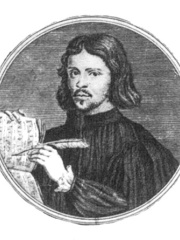
10. Thomas Tallis (1502 - 1585)
With an HPI of 67.16, Thomas Tallis is the 10th most famous British Composer. His biography has been translated into 43 different languages.
Thomas Tallis (; also Tallys or Talles; c. 1505 – 23 November 1585) was an English composer of High Renaissance music. His compositions are primarily vocal, and he occupies a primary place in anthologies of English choral music. Tallis is considered one of England's greatest composers, and is honoured for his original voice in English musicianship.
People
Pantheon has 112 people classified as British composers born between 1390 and 2005. Of these 112, 33 (29.46%) of them are still alive today. The most famous living British composers include Andrew Lloyd Webber, Michael Nyman, and John Rutter. The most famous deceased British composers include Edward Elgar, Henry Purcell, and Benjamin Britten. As of April 2024, 7 new British composers have been added to Pantheon including John Murphy, Muslimgauze, and George Benjamin.
Living British Composers
Go to all RankingsAndrew Lloyd Webber
1948 - Present
HPI: 78.83
Michael Nyman
1944 - Present
HPI: 66.61
John Rutter
1945 - Present
HPI: 58.67
Harry Gregson-Williams
1961 - Present
HPI: 57.63
James MacMillan
1959 - Present
HPI: 57.53
Dave Stewart
1950 - Present
HPI: 57.41
Patrick Doyle
1953 - Present
HPI: 57.17
Brian Ferneyhough
1943 - Present
HPI: 56.73
Clint Mansell
1963 - Present
HPI: 55.96
Fred Frith
1949 - Present
HPI: 55.67
Craig Armstrong
1959 - Present
HPI: 55.06
Rachel Portman
1960 - Present
HPI: 54.46
Deceased British Composers
Go to all RankingsEdward Elgar
1857 - 1934
HPI: 79.61
Henry Purcell
1659 - 1695
HPI: 78.16
Benjamin Britten
1913 - 1976
HPI: 73.16
Christopher Hogwood
1941 - 2014
HPI: 71.94
William Byrd
1543 - 1623
HPI: 71.09
Gustav Holst
1874 - 1934
HPI: 70.55
John Barry
1933 - 2011
HPI: 69.40
Eugen d'Albert
1864 - 1932
HPI: 68.45
Thomas Tallis
1502 - 1585
HPI: 67.16
Keith Emerson
1944 - 2016
HPI: 66.79
Ralph Vaughan Williams
1872 - 1958
HPI: 66.32
John Dunstaple
1390 - 1453
HPI: 65.85
Newly Added British Composers (2025)
Go to all RankingsJohn Murphy
1965 - Present
HPI: 47.81
Muslimgauze
1961 - 1999
HPI: 47.15
George Benjamin
1960 - Present
HPI: 47.13
Rebecca Saunders
1967 - Present
HPI: 44.84
Mark-Anthony Turnage
1960 - Present
HPI: 44.16
Rolfe Kent
1963 - Present
HPI: 42.06
Daniel Pemberton
1977 - Present
HPI: 38.04
Overlapping Lives
Which Composers were alive at the same time? This visualization shows the lifespans of the 25 most globally memorable Composers since 1700.

